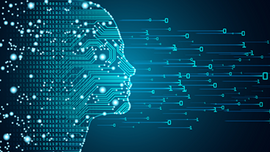High-level Conference AIFINCOE
Governing the Game Changer – Impacts of artificial intelligence development on human rights, democracy and the rule of law
26-27 February 2019, Helsinki
CONCLUSIONS
Information processing technology and machine learning tools rationalise services and deliver enormous efficiency gains in task and systems performance in a wide range of public and private fields. Increasing numbers of people reap many of the benefits of artificial intelligence (AI), as new tools for communication, news consumption, education, entertainment, commercial transactions and multiple other facets of daily life, are fundamentally transforming societies.
Technological advancement can enhance human development and contribute to creating optimal conditions for the exercise of human rights. At the same time, there are broader implications from its use, and possible misuse, for the core values of democratic societies, including equality and fairness.
The following guidance for the way forward to ensure that AI development occurs safely and for the benefit of all is inspired by the conference’s open, inclusive, inter-disciplinary and multi-stakeholder debate:
1. AI impacts, positively and negatively, on the exercise of human rights, the functioning of democratic societies, and the rule of law. It requires timely and thoughtful policy responses and must be placed at the top of governments’ political agendas;
2. AI holds significant potential for economic growth and innovation. These goals are essentially rooted in the shared values of democratic societies. The economic benefits deriving from AI cannot be realised without duly respecting these values;
3. AI affects all aspects of human life globally and transversally. All states and all stakeholder groups are therefore required to coordinate efforts and, inter alia, share information and good practices, and proactively develop synergies;
4. AI should be developed in a human-centric manner to produce benefits for individuals and for societies. A transparent and accountable assessment of the appropriateness of its application in a specific context, its benefits and risks, should be incorporated throughout the life-cycle of development;
5. It is important to develop a clearer understanding of AI and its impacts on human rights, democracy and the rule of law. This requires investment in inter-disciplinary and independent research into its direct and indirect effects on individuals and societies in concrete contexts;
6. Effective supervisory mechanisms and democratic oversight structures regarding the design, development and deployment of AI must be in place;
7. Functioning democratic processes require an independently informed public, and the encouragement of open and inclusive debates. Public awareness of the potential risks and benefits of AI must be enhanced and necessary new competencies and skills developed. Due public trust in the information environment and AI applications must be fostered;
8. Human rights are the core value of democratic societies, their protection and promotion requires active engagement from all actors, paying particular attention to the needs of vulnerable groups who may face marginalisation. Effective and legitimate mechanisms to prevent human rights violations and thwart discrimination, inequality and bias are necessary;
9. The design, development and deployment of AI tools must be subject to risk assessment in line with applicable principles. All automated processes should be designed to make them scrutinisable to a human reviewer. Effective remedies must be in place within public and private remits in all cases where human rights violations are alleged. Algorithmic transparency is crucial for building trust and ensuring due rights protection;
10. Equality before the law should not be compromised by algorithmic calculation. AI tools can support trained judges, while the content and contours of the laws and the legal systems of democratic societies must remain authoritatively governed by humans;
11. Existing landmark international instruments, including the Universal Declaration of Human Rights and the European Convention for the Protection of Human Rights and Fundamental Freedoms, are applicable irrespective of contextual changes brought about by AI and must be complied with to ensure that technological progress occurs in line with the principles of human rights, democracy and the rule of law. Ethical guidelines and self-regulation constitute additional tools to promote these values;
12. All relevant stakeholders should engage in in-depth exploration and research into the impacts of AI on human rights, democracy and the rule of law. The Council of Europe, in a multi-stakeholder approach, should continue to develop sector-specific recommendations, guidelines and codes of conduct to promote human rights and the viability of democratic institutions and processes. It should monitor the impact of AI on the collective foundations of democratic societies, continue to identify possible gaps in applicability and enforceability of existing regulatory frameworks, and on this basis, assess the need for further measures to ensure human rights compliant development, design and deployment of AI.



